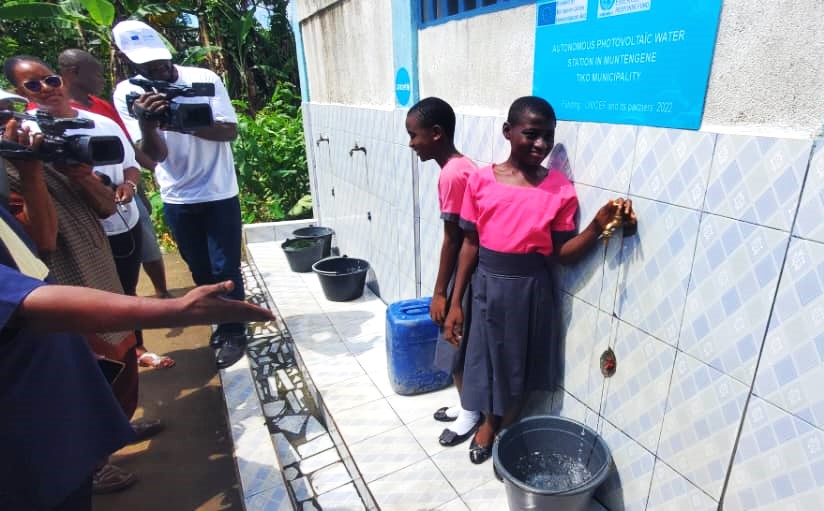A report on the situation in the Northwest and Southwest regions of Cameroon, especially regarding children and conditions surrounding their wellbeing was presented to Journalists in Buea, in November 2023.
The United Nations Children’s Emergency Fund, UNICEF during the event also presented several projects carried out in the Southwest and Northwest Regions of Cameroon in 2023, which were completed and handed over to those who were meant to benefit from it.
In a press Briefing organised on November 16 in Buea, it was revealed that thousands of school-going children are effectively out of school due to the crisis. It was revealed that to curb the potential negative impacts associated with not going to school, UNICEF had to carry out interventions. In this regard, it carried out activities which impacted 54895 children with non-formal education. 1740 transistor radios were distributed to communities for radio listening and lessons by children who were unable to go to school.
In the formal education sector, UNICEF distributed school kits to some 38474 beneficiaries. It also trained 659 teachers on its PSS/CDRR Connect My School Programme. UNESCO revealed that 2245 schools in the crisis-affected regions are not functioning. This represents 36 percent of the total number of schools in the crisis regions. However, UNISCO says the number is up by 18 percent compared to the previous year, the 2022/2023 academic year.
The Representative of UNICEF Cameroon Nadine Perrault told journalists that since 2018, UNICEF has carried out some key interventions to help those within its jurisdiction in the crisis-affected regions. Some of the interventions include; the construction and rehabilitation of water supply systems, (boreholes, gravity water supply schemes and solar water supply schemes).
UNICEF also carried out the construction and rehabilitation of latrines in schools, health centres, and markets. The organisation also distributed latrine kits and other items to households without toilets.
UNICEF revealed that it is also actively engaged in the distribution of critical water, sanitation and hygiene, WASH, supplies to vulnerable persons and dignity kits to adolescent girls.
UNICEF says it focused on Hygiene promotion/infection prevention and control for cholera and other WASH-related diseases, providing technical and financial assistance to partner government ministries and municipal councils. It also provided support with materials and equipment consisting of water quality field analysis kits, computers, water level measurement equipment, and chlorine.
The Buea press event was followed by field visits to some accomplished UNICEF projects like the Think Alive Teenage Club at Mile 14 Dibanda, where UNICEF in collaboration with the local NGO trained young girls and single mothers. UNICEF and its partner equipped the beneficiaries with the basic skills needed to be able to raise income for themselves and their families.
UNICEF also took journalists to where it constructed a modern Autonomous photovoltaic water station in Mutengene in Tiko Subdivision. There was also a visit to the water tank in Mutengene.
1500 School kits were distributed to pupils of schools affected by floods, and 20 schools were dis-infected, in Limbe.
Another stop was at the Limbe Down Beach Hospital where UNICEF provided laboratory equipment following the destruction of equipment during one of the recent flooding indents Limbe.
The field visit ended in Tiko where the organisation is constructing an education centre, which is a welcomed initiative by the community there.
UNICEF Cameroon says the situation of Children in the crisis-stricken Northwest and Southwest Regions of Cameroon is gradually improving, though still far from being the best.
UNICEF appreciates their donor partners which include ECHO, its major donor in Education, WASH and Child Protection and Emergency response. They also appreciated USAID for education, SIDA for emergency response, CERF for emergency response and GAVI for health interventions.
The country representative still appealed for more funding, saying that more still needs to be done to reach more children and communities that are in great need of help.
